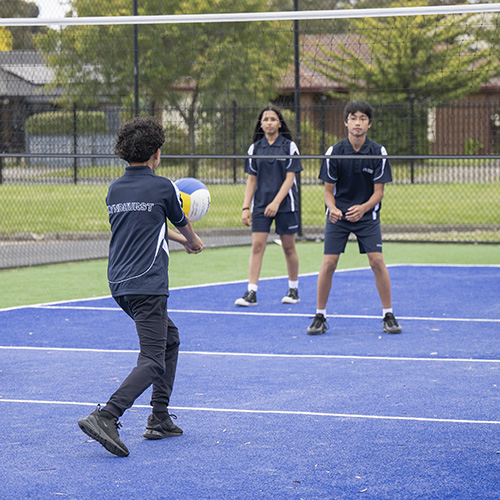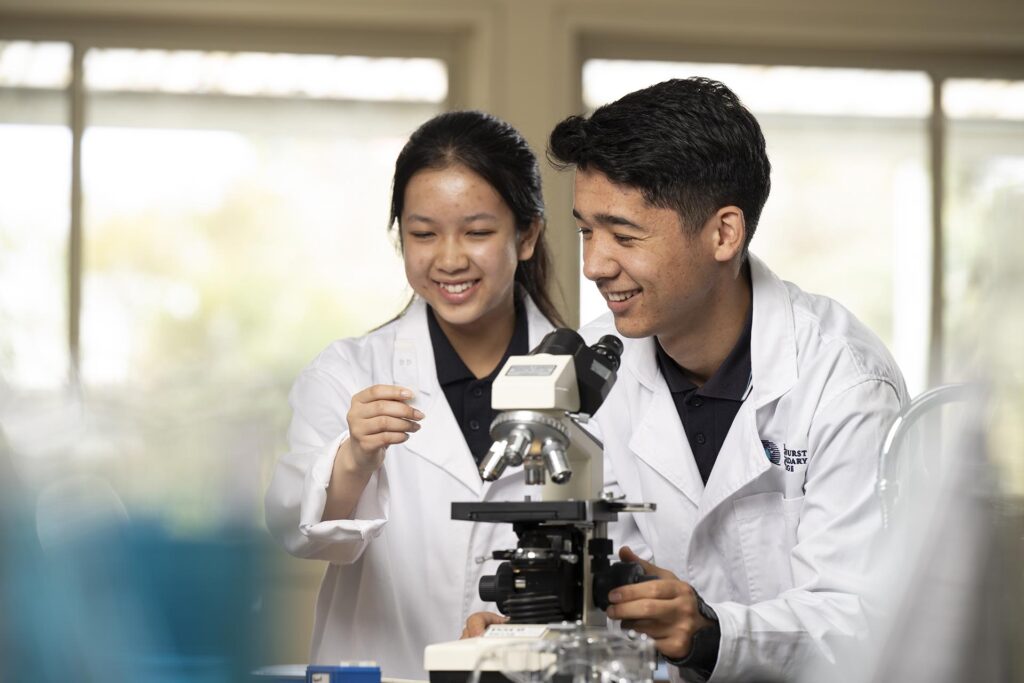-
Welcome to Lyndhurst Secondary College
A dynamic and diverse learning community in which we seek to empower students for learning and life
-
Welcome to Lyndhurst Secondary College
A dynamic and diverse learning community in which we seek to empower students for learning and life
-
Welcome to Lyndhurst Secondary College
A dynamic and diverse learning community in which we seek to empower students for learning and life

Principal’s Message
It is my pleasure to provide you with information about our college’s vision and how we focus on both the learning and wellbeing of all our young people to ensure we foster a safe, supportive and challenging learning environment each and every day.
I invite you to explore our website to see how our approaches to educating and supporting young people ensures we are building graduates that are equipped to not just survive, but thrive during their high school years and beyond.
Transition Program
At Lyndhurst Secondary College, we believe that a successful transition program is the first step to ensuring a successful schooling journey for students. We pride ourselves on having a comprehensive transition program that is student centred and skill based to ensure that all students experience success.
The Transition Team consists of the Junior School Assistant Principal, Junior Sub School Leader, Year 7 Team Leader, Wellbeing Leader, Inclusion Leader and Student Enrolment Offer. This diverse team ensure that the college can collect as much information as possible about our future students to ensure that their needs are catered for from day one of their schooling journey. This team works closely with the students primary school and families to support a successful transition to Lyndhurst Secondary College.


Our Vision & Values
Empowering students for learning and life.
Our values are visible throughout our college, including up in every classroom and learning space. All members of our learning community (students, staff, parents/carers) are expected and supported to live these values in their daily connection to the college.
Our values serve as the foundation of our Lyndhurst Legacy awards and recognition system.
College Facilities
The college’s facilities and grounds and provide students with a range of general and specialist buildings, as well as extensive natural environments to enjoy during break times. Facilities of the college include:
- Vast PE facilities, including full size oval, outdoor volleyball court, four outdoor basketball/netball/tennis courts and double Gymnasium
- Large Library space which provides quiet and focused spaces for students wishing to engage in lunchtime study, as well as quiet board and card games
- Specialist facilities including Science laboratories, Art spaces, Food Technology kitchens and Technology spaces which provide access for students to use 3D printers, drones and laser cutting/engraving machines
- … and more

Commitment
We always strive to work on ourselves and achieve our personal best in all things we do.
Excellence
High Expectations
Integrity
Respect
There are no upcoming events.